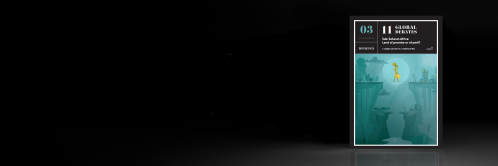Slowing growth in Africa is now old news. China’s slowdown, dropping commodity prices, and a variety of other factors have contributed to the lowest region-wide growth rate since 2000—3.3 percent in 2015 and most probably less than half this figure in 2016. Future threats—both predictable and unpredictable—like climate change-related disasters, conflicts, rising U.S. interest rates, and the population boom—loom over the region as well. But not all is doom and gloom: Commodity importers such as Kenya are taking advantage of low oil prices, while Côte d’Ivoire is fostering a booming agricultural sector.
The global debate now is how to maintain the momentum of African growth. Of the myriad of policy options, what should global and domestic policymakers prioritize?
A new essay, by Africa Growth Initiative Senior Fellow and Director Amadou Sy, ‘Sub-Saharan Africa: Land of promise or of peril?,’ examines the continent’s economic future in light of the commodity slowdown, shifting global environment, and many “self-inflicted wounds.” Arguing that diversification—in addition to sound macroeconomic policy—is essential to sustain Africa’s former high growth, Sy notes that integrating sub-sectors such as agro-processing and light manufacturing into regional and global value chains could be a boon to these now-lagging economies. In addition, he echoes the region-wide call for better and sustainable infrastructure just beginning to be prioritized.
While Sy calls on global actors to help create the environment to support Africa’s growth, he emphasizes that “it may be the domestic actors who hold the most potential to be main agents of change.”
The regional essay is of the recently released Global Debates series celebrating the 10-year anniversary of the Brookings Global Economy and Development program.






Commentary
A global debate: Is Africa the land of promise or of peril?
October 7, 2016